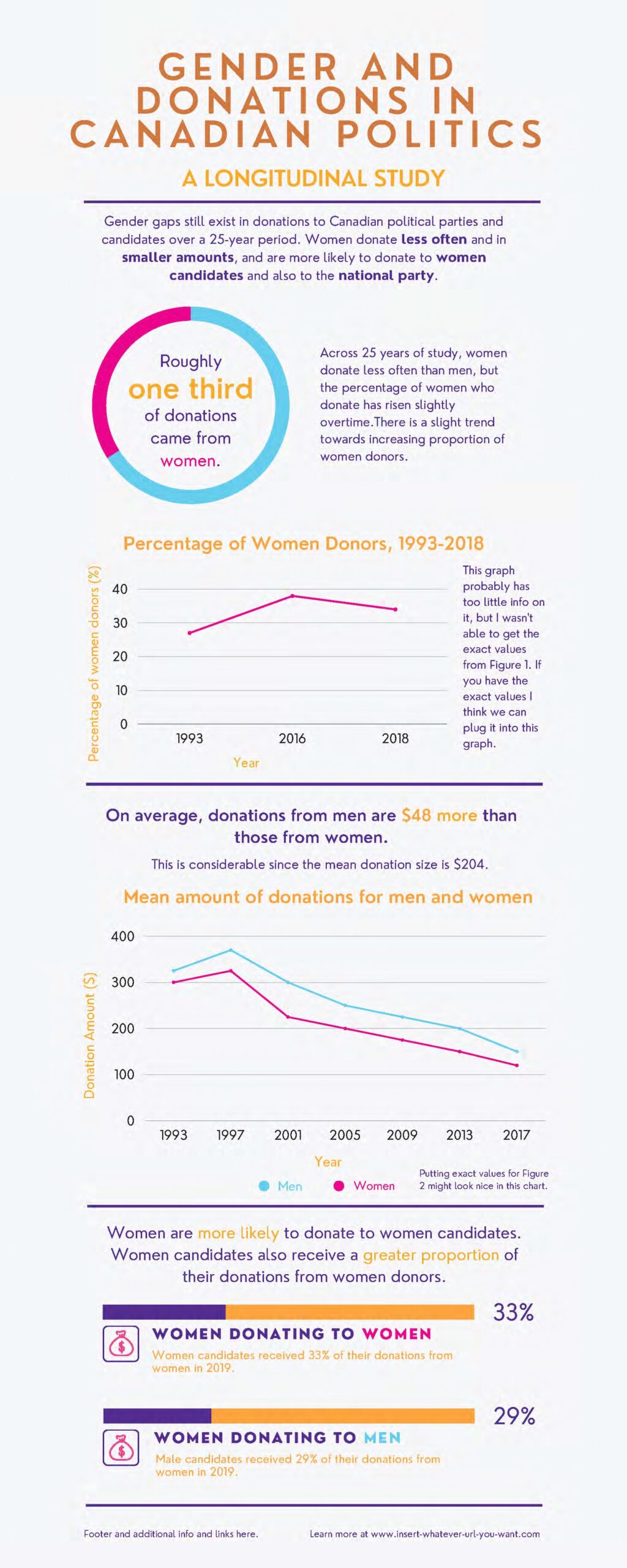Gender gaps in voter turnout and electoral representation have narrowed, but gaps in other forms of political participation remain.
In “Who Controls the Purse Strings: A Longitudinal Study of Gender and Donations in Canadian Politics,” Randy Besco, Semra Sevi and I examine gendered differences in donations. Donations are important because they furnish campaigns with necessary resources, provide voters with cues about candidate viability, and influence which issues politicians prioritize. This article has been accepted for publication in Politics & Gender.
We exploit an administrative dataset to analyze donations to Canadian parties and candidates over a 25-year period. We use machine learning to estimate donor gender and then link these data to candidate and party characteristics. Importantly, and in contrast to null effects from research on gender affinity voting, we find women are more likely to donate to women candidates, but women donate less often and in smaller amounts than men. The lack of formal gendered donor networks and the reliance on more informal, male-dominated local connections may influence women donors’ behavior. Change over a quarter-century has been modest, and large gender gaps persist.
Citation:
Tolley, Erin, Randy Besco and Semra Sevi (2020). Who Controls the Purse Strings? A Longitudinal Study of Gender and Donations in Canadian Politics. Politics & Gender 18(1): 244-272. doi:10.1017/S1743923X20000276.
